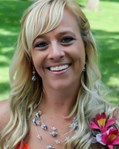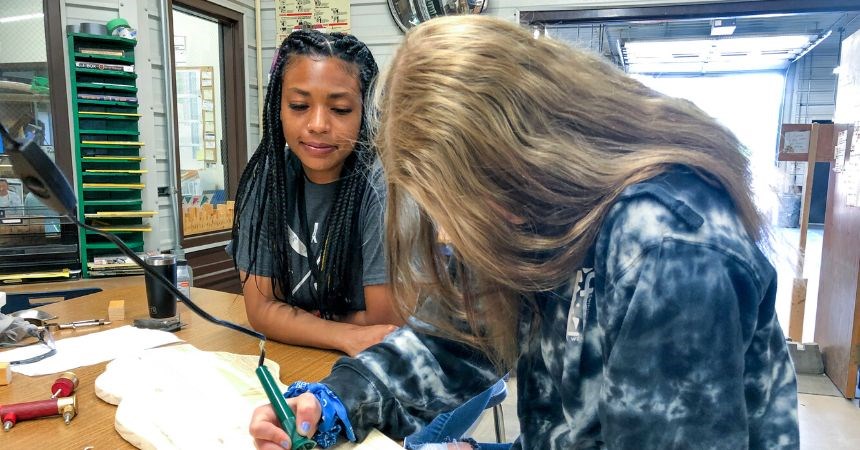
Tracey Watson, Program Manager
Dakota Boys and Girls Ranch
People often ask what makes the Ranch special. What do we do differently at the Ranch that helps kids heal?
The truth is that there is not one answer to that question. We focus on every child individually and find ways to meet their specific needs. Our goal is to help our children heal and grow so they can become successful members of their families and communities—and we do that by working with them one-by-one to determine their strengths and challenges, and to find strategies that will work for them.
As residents arrive at our facility, we identify their developmental level and determine their greatest needs so we can map out the skills they need to reach future goals. As a Program Manager, my focus is on the time our kids are in the cottages without scheduled "treatment activities." As with any family, the moments between activities make space for meeting kids where they are at and helping them heal.
This is not a comprehensive list of what we do in the cottages to help kids reach their treatment goals, and not everything listed works for every child. But, it does give you an idea of how treatment at the Ranch is not one-size-fits-all.
Involving families in the child's treatment. Our kids make the greatest improvements when families are involved in their treatment ("family" means something different for every child and includes birth families, grandparents, foster families, or the family to whom the child will discharge). We wrap services around the entire family and give them a voice in creating and implementing the treatment plan. We regularly bring together everyone involved with the child—including the family, child, and their entire Ranch treatment team—to discuss the child's progress, identify anything getting in the way of their success, and find ways to help them be successful. We work cooperatively with each other to create an environment based on open communication. Resident's participation in the program gives them an opportunity to develop skills to advocate for themselves. It also shows them that their future isn't based solely on their past and that the choices and decision they make now can change their trajectory.
Teaching independent living skills. Often, our kids are lacking in basic living skills. To recover some of the skills, we hold Independent Living Groups. We ask residents what they want to learn and plan our group sessions around those specific skills. Some of the topics we've covered include banking, filing taxes, budgeting, getting a driver's license, maintaining a car, and finding a job. We invite people from the community to teach the basic skills, and then give the kids time to practice. For instance, if they want to learn how to find a job, we walk them through the process of determining the type of job they are looking for, show them how to research the opportunities, help them complete an application, and teach them how to prepare for an interview. Last spring, we scheduled mock interviews with people throughout the Ranch acting as "interviewers." It was a great way for our kids to get more comfortable with the process.
Learning from other professionals as the needs of our children change. As a team, we expand our skills to better fulfill our mission. For example, we identified the need for extra training to broaden our foundational knowledge about cognitive delays. We reached out to our Occupational Therapy team, as well as worked with an outside Applied Behavior Analysis therapist and an Autism Consultant, to make recommendations for improving programming for residents who are on the autism spectrum. The most noticeable change in the cottages is the visual aids we use to meet residents at their cognitive level.
Creating sensory rooms in the cottages. Our residents work with Occupational Therapists throughout the day to discover their behavior triggers and find ways to address the behaviors they want to change. Because they need to practice the skills they learn, we created sensory rooms in our cottages where the kids can go to regulate their emotions. They practice building relationships and handling conflict in the cottages when they have free time to interact with each other. The cottages are the best place for them to practice the calming and emotional regulation skills they are learning in school, in therapy, and in OT.
Creating incentive plans. Some kids need incentives to manage their behaviors and expectations in the cottage setting. We include clear expectations and rewards in our children's behavior modification plans. Each child's incentive plan is geared to the things that motivate them—and the incentives are more than material rewards. Our goal is for residents to understand the importance of making human connections, making memories, and developing skills for a healthier lifestyle.
What differentiates the Ranch is our knowledge and practice of finding the right tools and strategies for every single child. We meet each child where they are at, to discover what they need to be successful.
This article was originally published in Ranch Voice: Summer 2021.
Read more stories like this and explore other issues of Ranch Voice here.

